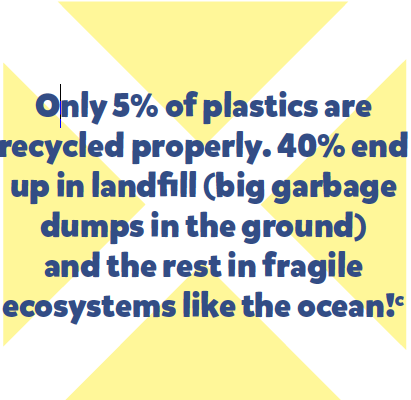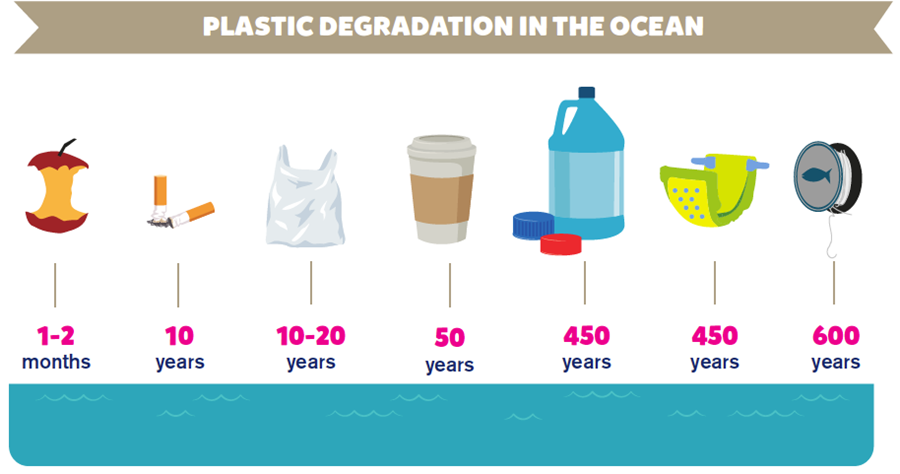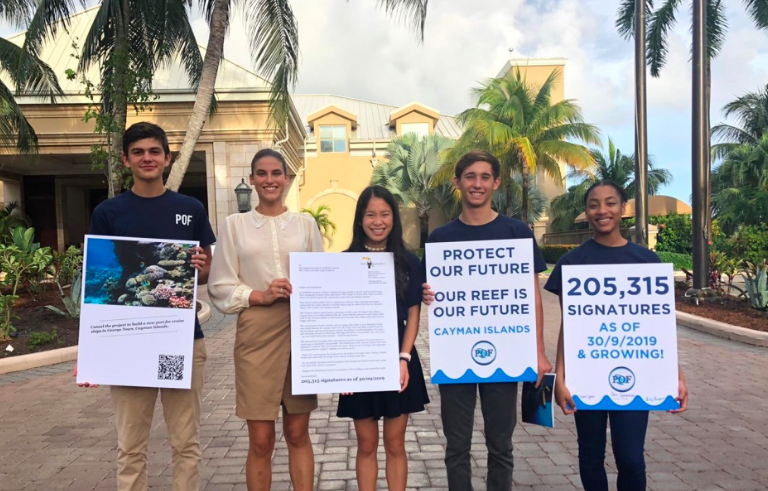
Turn the tide on plastic - what can Topper sailors do about it?
Many sailors around the world are taking a lead in highlighting the huge problem of plastics in our oceans, rivers, harbours and beaches. It matters more to youth sailors, as it is your future at stake. Youngsters can lead the way, and show the older generation that they need to change their habits and not pollute our waters with micro plastics, killing the organisms that create our oxygen and currents that control our climate.
Over half of the oxygen we breathe comes from the ocean!
The ocean covers 71% of the planet and holds 97% of the Earth’s water. How does the ocean allow us to live here on Earth?
The ocean provides 50% of the oxygen that we breathe. That means over half the fresh air we breathe is made in the ocean. Some of it comes from seaweed but most comes from tiny microscopic plants called phytoplankton, which take in carbon dioxide and release oxygen – just like trees!
The ocean regulates our climate, by absorbing the sun’s heat and transporting it through ocean currents around the globe. The ocean is always cooling and warming the planet. It is also the main driver in the water cycle, which gives us fresh water to drink.
The ocean supports different types of life and ecosystems. Whales, dolphins, fish, jellyfish, starfish and many more types of creatures live in the sea in different places like coral reefs, seaweed forests, and sea grass beds – all known as ecosystems. The ocean has some of the tiniest animals, like plankton, and the largest animal in the world – the blue whale. Coastal ecosystems of the ocean, like mangroves and coral reefs, are home to many different animals and also protect the land from storms. Phytoplankton that create oxygen were only discovered in the 1980's so imagine what other important animals live in the sea that we don’t yet know about!
The Ocean Race has created the Discover our Ocean education programme to inspire sailors all over the world to become champions of the sea, visit their site to learn more.
Can't we just recycle more?
Recycling is part of the solution and a good idea if we have to use plastic, but it is not the whole answer to the problem. Not all plastics can be recycled and it is estimated that only around 5% of plastic gets recycled properly worldwide. Many countries have to ship their plastic overseas to get recycled, causing more environmental problems.
What happens to the plastic that isn’t recycled? Plastics are around forever – in landfills, on our beaches, in our waterways and ocean. Over a very long period of time, sometimes over 100 years, plastic will degrade or break down into smaller pieces called ‘microplastics’, but they still remain in the environment. There are more microplastic particles in the ocean than the stars in the universe!
If we don’t act now there will be more plastic in the ocean than fish. Plastic is everywhere in the ocean...it is so dense in places it even replaces plankton as a primary food source for all sorts of marine animals - from the smallest zooplankton right up to the biggest whale, this means it is getting into the marine food chain and also ending up on our dinner plate!


Want to do your bit?
One of the biggest problems the ocean is facing right now is the amount of plastic that is being dumped into it. We use plastic a lot. Plastic bottles, plastic bags, plastic containers, plastic phones, plastic toys, plastic straws, just to name a few. Plastic is definitely useful, but discarded plastic is harming the ocean and we need to change our habits. At least one truckload of plastic is dumped into the ocean every minute!
We want to Turn the Tide on Plastic Pollution – and that means doing our best to use less plastic and when we do use it, making sure it doesn’t end up in the ocean by properly disposing of it. Come to the Sustainability Day at the Topper Worlds and learn what you can do to Turn the Tide on Plastic....we promise to make it fun too!
Don't forget that your injection moulded plastic Topper is one of the most sustainable dinghies on the planet and the Polypropylene hull can be recycled up to 4 times. If you want to learn how to reactivate an old, faded Topper or donate a discarded boat to the Learn to Dream programme to help sailors in WS emerging nations, then follow the link below.

ITCA World is partnering with the Captain Planet Foundation
We want to empower Topper sailors to create their own local projects to reduce the amount of plastic waste entering our oceans. Have a great idea to reduce plastic usage at your club or school? You could win a trip to the next Ocean Heroes Bootcamp in Vancouver and work with young leaders from all around the world to develop campaigns to act against ocean plastic pollution.
The Captain Plant Foundation ran a workshop for sailors at the 2019 World Championships in Medemblik, which resulted in Topper racers from around the world making pledges to start their own projects at home. Check the video here.
As an example, in the Cayman Islands, 3 Ocean Heroes, Steff McDermott, Ben Somerville, and Dejea Lyons, are taking aim at single-use plastic to protect their island’s reefs, mangrove ecosystems and help sustain the overall health of the ocean. They set up the '345 Pledge' with Plastic Free Cayman. The campaign, aimed at lessening and eventually banning single-use plastics, challenges businesses and individuals to reach that goal by making three changes immediately, four after six months and five after a year - the numbers echoing Cayman’s dialing code.